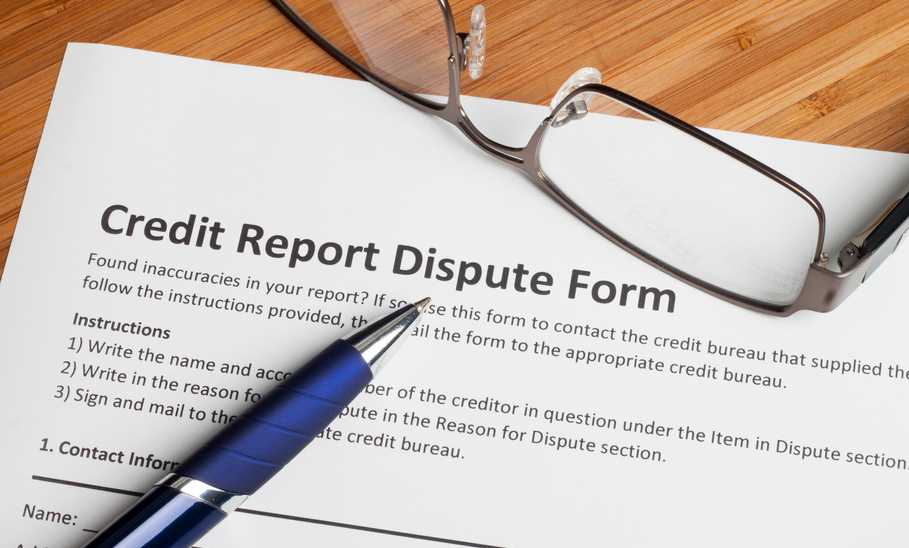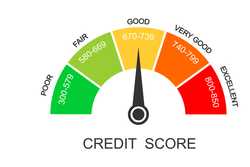How to Dispute a Credit Report

Our evaluations and opinions are not influenced by our advertising relationships, but we may earn a commission from our partners’ links. This content is created by TIME Stamped, under TIME’s direction and produced in accordance with TIME’s editorial guidelines and overseen by TIME’s editorial staff. Learn more about it.
Credit reports contain information about your debts and are used to generate your credit scores. Errors or inaccuracies on a credit report can affect the way your scores are calculated, but there's something you can do about them.
You should check your credit reports regularly to make sure errors haven’t crept in. Or that an identity thief hasn’t done something to undermine your credit. You can get a copy of your credit reports from each of the three major credit bureaus for free from AnnualCreditReport.com.
You don't need to pull all three reports at once, but you might do so to compare accuracy across all three. If you find an error on your credit report, Federal law gives you the right to dispute it.
The process for disputing errors is fairly straightforward. Just be sure you have all the details correct and the documentation organized to prove your points.
Errors and inaccuracies in a credit report can include items such as:
Negative information such as late payments or delinquencies something you can dispute, as long as it's accurate. For example, if you paid your credit card bill late a couple of times, the credit bureau isn't obligated to remove that late payment history from your credit profile.
Equifax, Experian, and TransUnion are the three largest credit reporting bureaus in the U.S. If you want to dispute a credit report error, you'll need to file your dispute with the bureau—or bureaus—that reported the information.
Each credit bureau has its own process for filing disputes. You'll have to submit a dispute request with each bureau that's reporting an error or inaccuracy.
So, say that an account that you paid off is still listed on your Equifax and Experian credit reports with a balance due three months later. You'd need to send disputes to both credit bureaus.
Again, you can get your credit reports for free from AnnualCreditReport.com. You can also access your reports and credit scores through myFICO.com, though you'll pay a monthly fee for credit monitoring.
Once you know what you can dispute and where to send the request, you'll need to provide some information to the credit bureaus. Your request should include:
It's important to be as detailed as possible as to why you believe there's an error on your credit report. The more information you can provide, the easier it may be for the credit bureau to investigate.
Bolster your case by providing supporting documentation. For example, if your report says you missed three payments to one of your credit cards but you have bank statements showing you made them on time, you could send these statements to the credit card company as proof.
Once you've submitted your dispute request, the credit bureau will take a closer look. We'll go over what actually happens during this phase and possible dispute outcomes a little later.
In addition to filing a dispute with the credit bureaus, you can also dispute inaccurate information with the business that reported it. The business can do its own investigation and, if an error is found, notify the credit bureaus that the information should be corrected.
You'll need to contact the business to find out where to send your dispute request and how it should be presented. The information you'll likely need to provide is similar to what you'd need to dispute credit report errors with the credit bureaus.
You can submit credit report disputes to the credit bureaus in multiple ways. How you decide to do it is up to you. Here's the information you'll need to dispute credit report errors.
Equifax
Experian
TransUnion
Pro tip: If you're mailing in a dispute, you may want to send it by certified mail so that you have a paper trail showing when the credit bureau receives it. For extra certainty, send it “Return receipt requested.” You’ll get a postcard in the mail when it has arrived.
The outcome of a credit report dispute can depend on what's being disputed and what the credit bureau's investigation finds.
For disputes involving personal information, such as your address or employment history, outcomes can include information being added, updated, or deleted. Credit information, such as payment history or balances, can also be updated or deleted. However, changes are only made if the credit bureau agrees with your dispute. if the investigation finds that the information is accurate, then it will remain on your credit reports.
If you were hoping for a different outcome than the one you got, you have a few options. You could:
When the information being disputed is negative but accurate, the only thing you can really do is wait for it to fall off your credit report. Negative information can stay on your credit for seven years—10 years if you file for Chapter 7 bankruptcy.
There are companies that advertise services to help you repair your credit. But this typically involves disputing information, which you can do yourself using the steps listed above.
Once you file a credit report dispute, the credit bureau has 30 days to investigate. Keep in mind that the bureau can halt the investigation if it believes it's frivolous or irrelevant, as long as it notifies you in writing.
During the investigation process, the credit bureau will ask the business that reported the disputed information to confirm its accuracy. If an error is found, the business must notify all three credit bureaus so they can correct your credit reports.
If no error is found, the disputed information will stay on your credit reports. Regardless of whether the dispute is resolved in your favor or against you, the credit bureau with which you initiated the dispute must provide you with an explanation of the outcome in writing.
Checking your credit reports regularly can help you spot errors that might be dragging your scores down. Knowing how to dispute credit report inaccuracies could improve your scores and, subsequently, make it easier for you to borrow money and secure more attractive rates.
If you don't agree with the credit bureau's findings, you can reach out to the business that reported the information directly. It can initiate its own investigation to determine whether the information is accurate or not. You could also try submitting a new dispute request to the credit bureaus or adding a statement to your credit report saying that you disagree with the information.
If you submit a credit report dispute with a credit bureau, you should be able to track your request online. You may need to register or create an account with Equifax, Experian, or TransUnion first. You'll also need the identification number assigned to your dispute claim to track its progress. Once the dispute investigation is complete, you should receive a written explanation of the findings from the credit bureau.
Initiating a credit report dispute has no impact on your credit reports and you're not limited as to how often you can dispute information. If the dispute outcome results in a change being made to your credit report, it could affect your credit scores. Whether the impact is positive or negative depends on the nature of the change being made.
The information presented here is created by TIME Stamped and overseen by TIME editorial staff. To learn more, see our About Us page.




